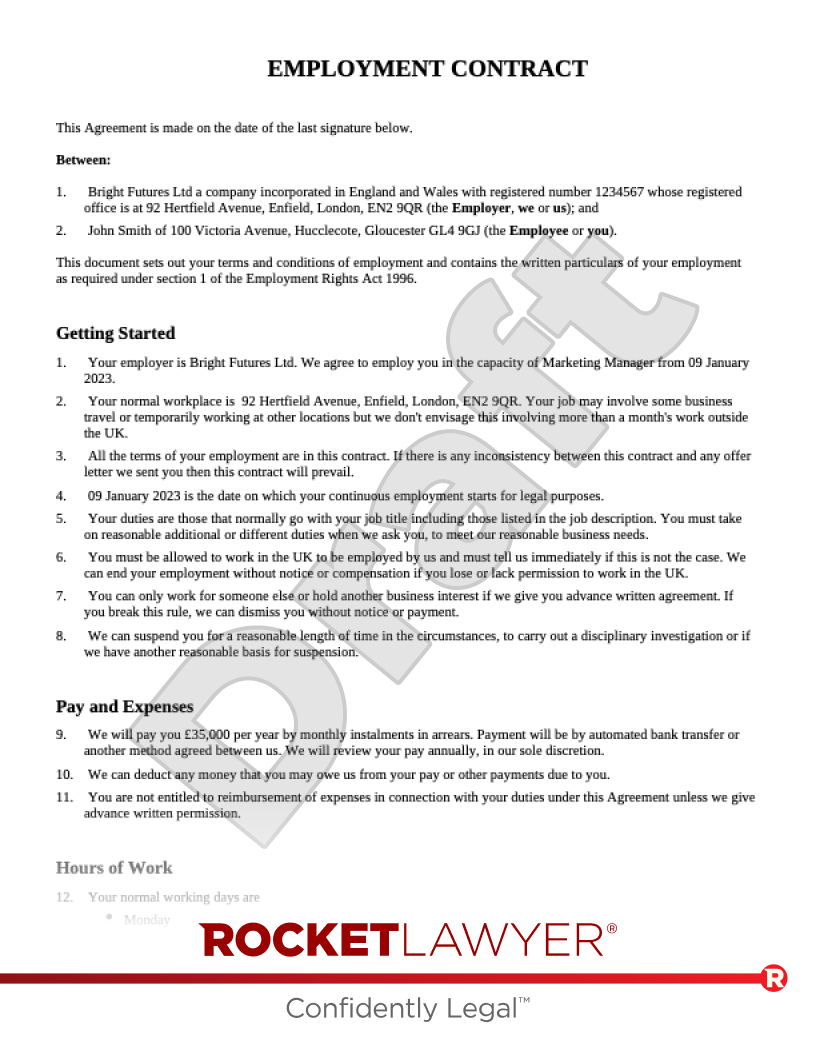What is garden leave?
Garden leave is when a departing employee is required to stay away from work during their notice period. They remain an employee during this period but do not perform services.
In general, the employee should continue to receive all normal salary and benefits during garden leave, unless their Employment contract says something different.
When should I use garden leave?
You should consider using garden leave if
-
you are dismissing an employee
-
do not want them to attend work during their notice period, and
-
also do not want to release them to start a new job
For example, you may wish to rely on a break clause if an employee is they are joining a competitor and you want to restrict access to confidential information and contacts.
You can also use garden leave if you think post-employment restrictions (PERs) in the employment contract may be unenforceable. PERs include prohibitions on joining a competitor or soliciting staff or customers for a period after employment.
Garden leave can also be instigated at the employee's request (if it suits you too) or as part of negotiated terms over departure.
You must make sure either that the employee’s contract of employment gives you a specific and enforceable right to use garden leave or that the employee agrees in advance (preferably in writing).
What if there is no agreement allowing garden leave?
Without an advance agreement, putting an employee on garden leave is technically a breach of contract. This means that they may be able to treat themselves as dismissed (eg constructively dismissed) and immediately released from their employment, free to take up a new job.
You will also lose the right to rely on any other parts of the contract yourself such as PERs or confidentiality protections and the employee will have legal rights to claim against you for dismissal (even if they originally resigned).
Consider whether making a payment in lieu of notice (PILON) is a satisfactory option instead. For more information read PILONs.
Ask a lawyer before attempting to put an employee on garden leave if there is no agreement permitting it.
Is there anything else I should watch out for?
Garden leave is legally considered to be a type of restraint of trade since it keeps employees out of the market. As such, it must be reasonable to be legally enforced.
The maximum period of garden leave must normally be no more than about 6 months.
If the notice period is longer than six months, check whether the contract allows you to start the garden leave part-way through the notice period. This helps ensure that the maximum is not exceeded.
The reasonableness of garden leave must be considered alongside any PERs, so consider the overall period of restriction. If the total period is too long then you will have to choose between using garden leave and the post-termination restrictions.
If you must choose between using garden leave or relying on PERs, remember that garden leave is normally easier to enforce if there’s a dispute. However, it is more expensive, as the employee is paid for not working.
If in doubt then Ask a lawyer about this tricky area.




